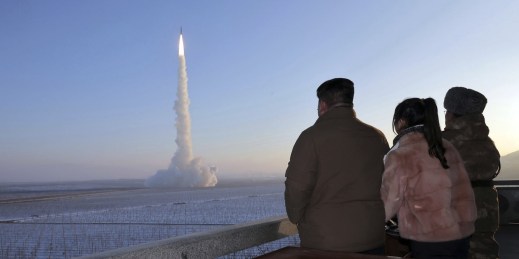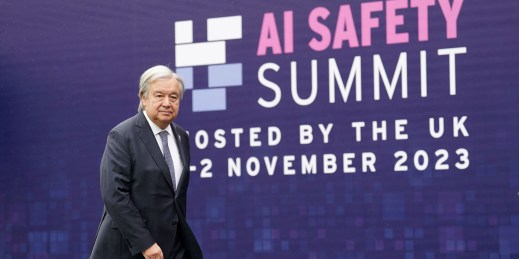Global Archive
Free Newsletter

Narratives about civilian casualties in Gaza misconstrue how casualties are estimated and misunderstand what a civilian is.

Negotiators of an international legally binding treaty on plastic pollution, including in the marine environment, just concluded their fourth session in Ottawa, Canada. With four rounds of talks now down and just one to go, negotiators left Ottawa with no agreement on the scope of the future treaty nor any narrowing of options.

Emmanuel Macron recently made clear that he views France’s nuclear deterrent as an essential part of European defense, while Russia engaged in another round of nuclear saber-rattling in order to dissuade further Western support to Kyiv. All of this raises a fundamental question: Are nuclear weapons actually an effective deterrent?

The U.N. often seems powerless, especially amid today’s polycrisis. Yet the organization did seem poised to take a leading role in one emerging global challenge: governing AI, at least until the growing trend of AI nationalism became an obstacle. Ideally, however, the U.N. should still play a leading role in AI governance.

Most commentary about the movie, “Civil War,” focuses on its political realism, or lack thereof, and ignores what it teaches audiences about the role of the media as both observers and participants in conflicts. Here are some things the film gets right and wrong about civil wars and war reporting, based on political science.

The movement seeking reparations for slavery and colonialism has so far been met with minimal buy-in from the former colonial powers that benefited from the trans-Atlantic slave trade. But engaging with calls for reparations could be a powerful diplomatic gesture that those nations could offer to the Global South.



